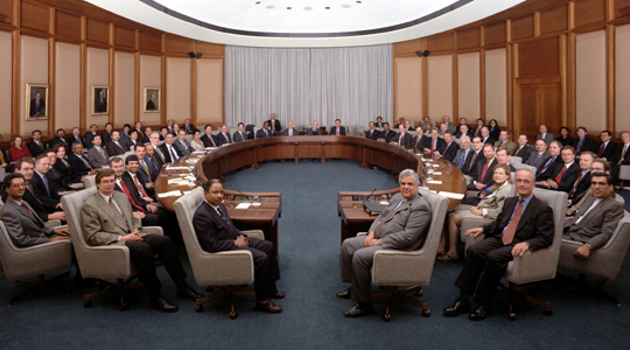When criticizing the IMF, I usually focus on how the bureaucrats relentlessly urge higher taxes. Indeed, I often complain about how the bailouts are provided only if countries agree to raise taxes (another lose-lose situation).
Today, though, I want to write about another bad IMF policy. Earlier this year, the bureaucrats (with support from the Biden Administration) allocated $650 billion of new Special Drawing Rights (SDRs) – sort of a version of IMF-created money.
You can learn about SDRs by clicking here and here, so I won’t bore people with a description of how they work.
For purposes of our discussion, what matters is that the IMF uses SDRs to enable more government spending.
And that’s not a recipe for prosperity, either for national economies or the global economy.
Earlier this year, Mary Anastasia O’Grady of the Wall Street Journal highlighted how SDRs are rewarding very dodgy governments in Latin America.
Nicaraguan dictator Daniel Ortega is jailing, killing and disappearing his political opponents. …At the International Monetary Fund, he’s a valued member. So too are the governments of socialist, deadbeat Argentina and of El Salvador, which every day slips further into arbitrary, authoritarian rule. These are some of the bad actors in the Western Hemisphere who received more “special drawing rights” from the IMF on Aug. 23 as part of a new $650 billion general allocation. …SDRs are created out of thin air but can be converted, on demand, into hard currency. …Treasury Secretary Janet Yellen, who led the charge for this new round of SDRs, claims the transaction is cost-free… In fact, the conversion of SDRs to dollars is a subsidized, perpetual loan. For poor countries the subsidy is above 90% of the loan value. …There was a time when large multilateral handouts were conditioned on attempts at good governance. Those days are gone.
In a column last month for the Wall Street Journal, D.J. Nordquist and Dan Katz also analyzed the impact of the IMF’s policy.
…the International Monetary Fund announced in August a new general allocation of special drawing rights equivalent to $650 billion. …All IMF members, even rogue nations, receive them, so Iran got some $5 billion and Belarus $1 billion. …The allocation added more than $17 billion to Russia’s record-high reserves…the IMF and other proponents justified the SDR allocation on grounds that its benefits outweighed the harms… But because of the IMF shareholding formula… Only 3% of the general allocation flowed to low-income countries. …the IMF publicly indicated it would collaborate with the World Bank and other international financial institutions to ensure that SDRs were put to productive uses… Unfortunately, the IMF appears to have fallen into a classic trap of international organizations: acting based on aspirations rather than binding agreements. …Public confidence in international financial institutions has been understandably shaken as a result of corruption investigations into the IMF’s emergency pandemic-relief loans, theft of World Bank assistance by elite government officials, and serious questions regarding inappropriate Chinese influence at the World Bank, the World Health Organization, and elsewhere.
I’ll close by noting that SDRs are a great deal for politicians and bureaucrats. They get more spending, all of which seems free. And since almost nobody understands how this racket works, there’s near-zero democratic accountability.
P.S. Shifting gears, here’s are some excerpts from an article on the IMF’s website. It has nothing to do with the SDR issue, but it is a window into the the IMF’s statist mindset. The bureaucracy is lauding an economist, Mariana Mazzucato, who argues for industrial policy.
Mazzucato has been stirring the pot in economics and public policy for nearly a decade. Her main message is that governments around the world need to seize their power to lead innovation for the betterment of humanity. …Government is for setting big goals, defining the missions necessary for achieving them, encouraging and investing in innovation, and governing the process so that the public benefits. …She made the case for rethinking the role of government in her 2013 book, The Entrepreneurial State: Debunking Public vs. Private Sector Myths. …“State capacity has really been hollowed out because of the narrow way that we think about the state,” she says. …That’s particularly evident in the United Kingdom and the United States, where political leaders defunded public health and devalued government itself, eroding public trust and government’s capacity to respond to crises, she says. …Mazzucato urged “citizens’ dividends” and government equity stakes in businesses linked to government funding.
As illustrated by this video, letting politicians distort the economy is a recipe for stagnation and corruption.
P.P.S. There are many good economists who work at the IMF and they often produce high-quality research (see here, here, here, here, here, here, here, here, here, and here). Sadly, their sensible analyses doesn’t seem to have any impact on the policy decisions of the organization’s top bureaucrats.
———
Image credit: IMF | Public Domain.




